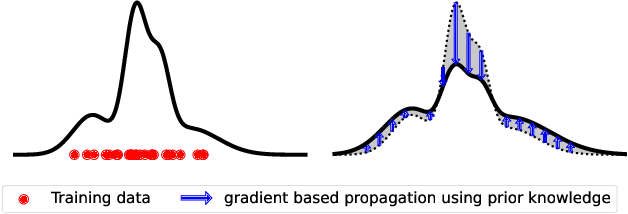TRADE: Transfer of Distributions between External Conditions with Normalizing Flows
Paper and Code
Oct 25, 2024



Modeling distributions that depend on external control parameters is a common scenario in diverse applications like molecular simulations, where system properties like temperature affect molecular configurations. Despite the relevance of these applications, existing solutions are unsatisfactory as they require severely restricted model architectures or rely on backward training, which is prone to unstable training. We introduce TRADE, which overcomes these limitations by formulating the learning process as a boundary value problem. By initially training the model for a specific condition using either i.i.d. samples or backward KL training, we establish a boundary distribution. We then propagate this information across other conditions using the gradient of the unnormalized density with respect to the external parameter. This formulation, akin to the principles of physics-informed neural networks, allows us to efficiently learn parameter-dependent distributions without restrictive assumptions. Experimentally, we demonstrate that TRADE achieves excellent results in a wide range of applications, ranging from Bayesian inference and molecular simulations to physical lattice models.
 Add to Chrome
Add to Chrome Add to Firefox
Add to Firefox Add to Edge
Add to Edge